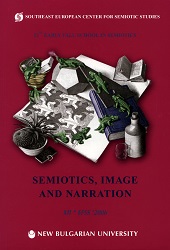
We kindly inform you that, as long as the subject affiliation of our 300.000+ articles is in progress, you might get unsufficient or no results on your third level or second level search. In this case, please broaden your search criteria.

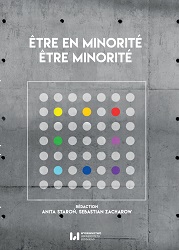
The Literature of Jewish writers from North Africa in postcolonial France is a particularly sui¬table example for the analysis of what being in a minority and / or be a minority means. Indeed, the status of the Jews from Maghreb can be viewed in a twofold manner – as a minority from the point of view of legal and customary status and from the demographic point of view. The “minority” or “minor” refers first to the minority position of producers from this population in the global social space. It can give their literature a political-cultural dimension, as explained in the definition given to “minor literature” by Gilles Deleuze and Félix Guattari. The other aspect of the “minor” or “minority” character – close to the definition of Jacques Dubois – ori¬ginates from the fact that this population of authors consists not only of recognized writers in the literary field but also marginal authors. The “minor” term, in this second case, refers neither to the subversive capacity of the culturally dominated literary production nor to the use of a majority language by a minority. The objective is therefore to verify the relevance of the use of this term referred to a literary production of a minority group inscribed in and in interaction with a national and dominant literature.The Literature of Jewish writers from North Africa in postcolonial France is a particularly suitable example for the analysis of what being in a minority and / or be a minority means. Indeed, the status of the Jews from Maghreb can be viewed in a twofold manner – as a minority from the point of view of legal and customary status and from the demographic point of view. The “minority” or “minor” refers first to the minority position of producers from this population in the global social space. It can give their literature a political-cultural dimension, as explained in the definition given to “minor literature” by Gilles Deleuze and Félix Guattari. The other aspect of the “minor” or “minority” character – close to the definition of Jacques Dubois – originates from the fact that this population of authors consists not only of recognized writers in the literary field but also marginal authors. The “minor” term, in this second case, refers neither to the subversive capacity of the culturally dominated literary production nor to the use of a majority language by a minority. The objective is therefore to verify the relevance of the use of this term referred to a literary production of a minority group inscribed in and in interaction with a national and dominant literature.
More...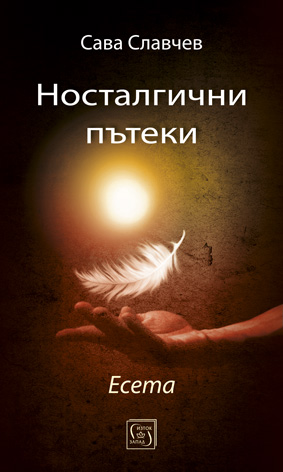
"Sava Slavchev's essays are balanced, elegant and erudite, completely devoid of unnecessary categorical timelines. Here's what I wrote to the author as soon as I read his book: "This is your form, the enjoyment of freedom in the way you use it is evident. I wanted the end of the essay in the part on literature and culture to be bolder and accusing, even sinister, to gain a place in the mind of the reader. Luckily there is nothing like that! The cultural man is known in the way he protects the culture, and I am a barbarian and realized myself as such while I was reading. But this awareness does not hurt me, no - it inspires me! " - Peter Delchev
More...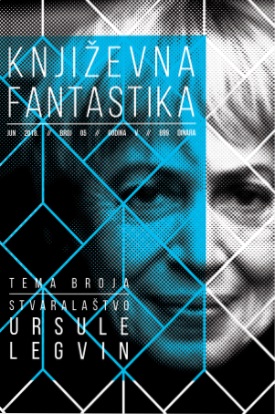
Ovaj esej ima za cilj, pored pružanja pregleda razvoja žanra fantastike u francuskoj (i frankofonoj) književnosti prevashodno 20. i 21. veka (uz isticanje ranijih ključnih predstavnika), i da postavi par načelnih pitanja1. Naime, izučavaocima fantastike ne promiče činjenica da je, u slučaju francuske moderne književnosti (od Prosvetiteljstva naovamo), za razliku od srednjovekovne i renesansne, spoljni podsticaj često bio potreban za slobodan i nesputan razvoj ovog žanra. Taj podsticaj ne samo da je bitan, nego je ključan, čak neminovan (ima li se u vidu nasleđe klasicizma i prosvećenosti, kasnijeg pozitivizma kao osnovnih odlika te literature – bar tako shvaćene u očima pisaca i kritike glavnog toka): reč je o činjenici koja se, takoreći ciklički, organski, ponavlja, i obuhvata čak tri stoleća književnosti; od uticaja gotskog romana na Kazota, Florijana, Sada (i druge, predrevolucionarne pisce), preko uticaja Hofmana na romantičare i Poa na Bodlera (te, njegovim posredstvom, na školu dekadenata s kraja devetnaestog veka (Fin de siècle), kao i na celokupnu belgijsku književnu scenu), sve do uticaja Lavkrafta na pisce kako žanrovske tako i književnosti glavnog toka od poratnog razdoblja 20. veka do danas. Pa ipak, teško se može reći da su, kada se velika pera francuske književnosti, u jednom širokom luku, nabroje, pisci kao što su Ritbef, Vijon, Rable, Dobinje, Molijer, Pero, Sad, Balzak, Nerval, Gotje, Bodler, Mopasan, Uisman, Roni Ene, Švob, Makorlan, Mandijarg, Eme, Grak, Turnije, da se zadržimo samo na klasicima (neretko i prevratnicima), teš- ko se za njih može reći da su nosioci usko shvaćenog „Racionalističkog duha“ – duha lišenog fantastičke svesti i potrebe za fantastikom. To je tim čudnije što je začetnik izučavanja fantastične priče, prvi sakupljač narodnih umotvorina tog vida, njihove redakcije i štampanja Šarl Pero, čiji je uticaj na Nemačku školu i Braću Grim (a preko njih na sve vodeće evropske književnike iz te oblasti, uključujući i Vuka Karadžića kod nas), neosporan. Pero je, u sporu Starih i Modernih, stao na stranu drugih upravo ističući fantastičnu priču (u osnovi, kod njega, bajku) kao delo modernih (kako po motivu, tako i po formi).
More...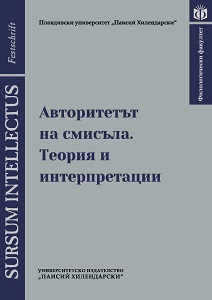
The publication of the present Festschrift volume was suggested and initiated by the Department of Bulgarian Literature and Theory of Literature, School of Letters at Plovdiv University Paisii Hilendarski. It is dedicated to the seventieth anniversary of assoc. prof. Atanas Buchkov, long-term head of the department. This volume includes papers of literary scholars in various areas from Bulgarian and foreign academic centres – Plovdiv University Paisii Hilendarski, Sofia University St. Kliment Ohridski, The Institute of Literature at the Bulgarian Academy of Sciences, St Cyril and St Methodius University of Veliko Tarnovo, The South-West University Neofit Rilski in Blagoevgrad, Queen Mary University London, Ruprecht-Karls-Universität Heidelberg, Tver State University Russia. The papers are published in honour of the literary scholar and teacher who merits a place amidst the most prominent representatives of Plovdiv philological community, a person of incontestable contributive influence and renoun in nurturing and solidifying the philological and humanitarian education at Plovdiv University. This Festschrift unites scientific researches devoted to issues representative of prof. Atanas Buchkov’s scholarly interests – the theoretical heritage of M. M. Bakhtin; the dialogic principle of/in literature and culture; author and his aesthetic and social roles; methodology of literary theory and of the humanities; the possibilities, premises, and routes of interpretation.
More...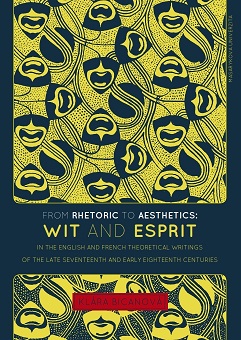
The thesis deals primarily with the term wit and its modern and historical usage in literary and aesthetic theories. Further, it concerned with the literary and aesthetic implications of the terms wit and esprit as they were theorized in critical writings of several authors of the early modern England and France. The thesis has two primary goals. The first goal is to re-assess the English concept of wit, nowadays regarded as an out-dated device of past poetic systems, and to present it as vital and useful part of the contemporary discourse. The second goal is to provide comparative reading of early modern English and French theoretical texts dealing with wit and esprit, respectively. Presenting ideas on the English term wit as employed in the theoretical writings in the light of its French equivalent esprit, I wish to demonstrate a gradual development of the terms from rhetoric to aesthetic.
More...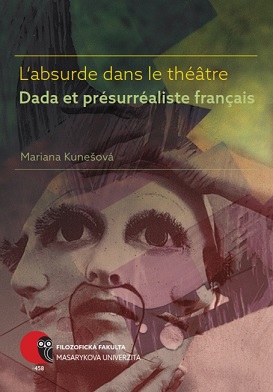
The publication focuses on the absurd in the French Dada and pre-surrealist theatre, examining the scenical potential of three texts which have, until now, remained practically unexplored: “La Premiere aventure celeste de Mr. Antipyrine” by T. Tzara, “Les Mysteres de l’amour” by R. Vitrac, and “S’il vous plait” by A. Breton and P. Soupault. The author understands the absurd as an aesthetic category applicable to theatre analysis in general – contrary to the “Theatre of the absurd”, a concept suggested by M. Esslin in order to characterize the avant-garde of the 1950s and often criticized for its lack of precision. The conclusion evaluates Esslin's contribution to the study of the absurd in theatre.
More...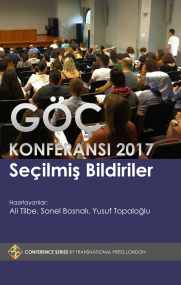
With this book, you're going to have to go to the fifth We present a review of the papers presented at the Migration Conference to our readers. 35 articles addressing the issue of migration from various disciplines and perspectives share a wide range of reviews. This paper-book offers a selection of more than 100 sessions, panels and workshops in total, as well as the 400 papers presented at the fifth migration conference in Athens, which lasted four days. Many participants from more than 60 countries, from economics to anthropology, sociology to medicine, working in the field of migration from a wide range of disciplines, migration and security, gender, public administration, repatriation migration, law, political participation, diyaspora, media, as well as migration culture and summer presented a large number of papers on the subject.
More...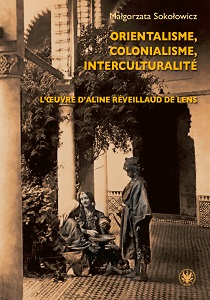
The book rediscovers the works of Aline Réveillaud de Lens (1881-1925), a French writer and painter who, since 1911, lived and worked in Tunisia and Morocco. In her works she portraited Maghreb and North African women. Three categories – orientalism, colonialism and interculturality – have been used to show the dynamics and uniqueness of her texts and paintings.
More...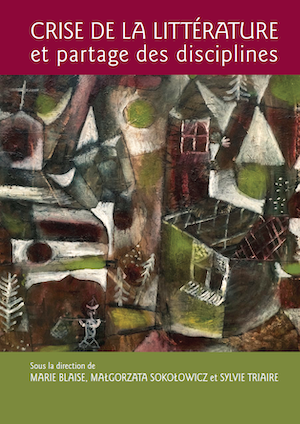
This volume, the result of a conference held in Warsaw in December 2019 as a part of a Franco-Polish research project on crises in literature, focuses on the relationships that the literature maintains with other fields of knowledge. These relationships, made up of sharing, collaboration or tension, were primarily theorized in the 19th century when the founding "disciplines" of our universities and research practices were established, but they had existed before. The texts presented in this volume allow us to verify this, from the Renaissance period to contemporary literature. They deal with historical circumstances and aesthetic changes in the course of which literature has forged links with religious or historical thought and discourse, accompanied the emergence of sociology or ethnography, and prepared new disciplines, such as demography. And it has always reinvested this new knowledge with a humanist and poetic dimension. Does the literature crisis lay in its capacity for reinvestment of what seems to escape from it and aiming at autonomy?
More...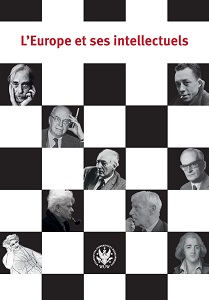
To celebrate the 200th anniversary of the foundation of the University of Warsaw, a research group from the Faculty of Modern Languages organized at the end of May and the beginning of June 2016 an international conference entitled “Europe and its Intellectuals”. The event was planned as part of the international programme “European Culture – European Identity” which is co-organized by the University of Warsaw with, among others: Universtité de la Sorbonne-Paris IV, Universität Bonn, Universita de Firenze, University of St Andrews, Université de Fribourg, Universita degli Studi Firenze, Universidad de Salamanca, Bulgarian Academy of Sciences, Université de Toulouse Le Mirail. The aim of the project was to show to what extent the idea of Europe was and is being shaped by the intellectual elites, and to emphasise the role played in this process by important institutions such as universities, libraries, museums, archives, publishing houses, and other centres of intellectual life. Such a framework allowed the participants to reflect in their presentations and discussions on more detailed issues: Panel I – “Engagement in the interest of Europe and its shape”, Panel II – “Europe in comparative perspective”, Panel III – “Remarkable individuals of the intellectual Europe”, Panel IV – “European incarnations”. At the invitation of the rector of the University of Warsaw, Marcin Pałys, the conference was attended by the rectors of the Paris-Sorbonne University and the University of Bonn. The papers of twenty-three scholars have been edited and published by the University of Warsaw Press in a volume of conference proceedings in printed and electronic versions.
More...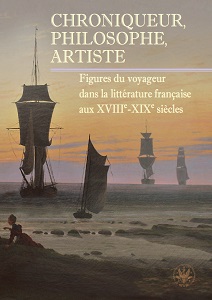
This volume focuses on the figure of the traveller emerging from the French literature of the 18th-19th centuries (real and imaginary travels). Eminent specialists from universities around the world (Réunion, Montpellier, Nancy, Lausanne, Szeged, etc.) analyse the changes taking place in the way the traveller is represented. Do travel accounts always focus on real trips? Does travel literature speak (only) about travels? What is the aim of imaginary travels? Does each literary period have its own model of travelling? The volume provides answers to all of those questions and much more.
More...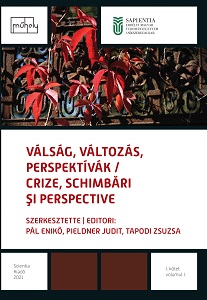
One of the foremost challenges of writing children’s literature is dealing with trauma such as wars, crimes, and violence. The article aims to highlight how comic books’ authors manage to fulfill the responsibility of memory towards young readers, to convey the memory of the Holocaust in an adapted way. In this way, we propose three French comic books for analysis – The Hidden Child by Marc Lizano, Loïc Dauvillier, and Greg Salsedo; The Wild Flight by Laurent Galandon, Arno Monin, and Hamo; Irena by Marc Lizano, Loïc Dauvillier, and Greg Salsedo. Focusing on the image of the child captured in these works, we will take in consideration how fiction presents the Holocaust experience and how it affects the characters’ development. We will also observe that, as a reader, the child is protected: the authors are concerned with its sensitivity and immaturity. They use adapted techniques designed to facilitate the meeting between the child and history.
More...
In this paper, I examine the significance and meaning of rust motifs in the so-called “critical fiction” segment of contemporary French literature, and more specifically in the novels of François Bon. Without following through the appearances of rust in literary history exhaustively, some previous instances are briefly mentioned, since rust is one of the most frequently used images of the fragility and transience of the man-made world. In extreme contemporary literature, the poetics of rust expresses the nostalgia for a past industrial society in strange configurations, without remaining within the narrow confines of realistic presentation. Despite its apparent stasis, rust always presupposes an earlier pre-rust time horizon, that of the brand new state of the man-made object, machinery, or bridge. Recently, François Bon published a study of László Moholy-Nagy’s photo series of the transporter bridge of the Old Port of Marseille, blown up in 1944. The pedestal of the transporter bridge, as a rusting memento, from time to time awakens the desire in the French to reconstruct this peak of engineering and industrial achievement.
More...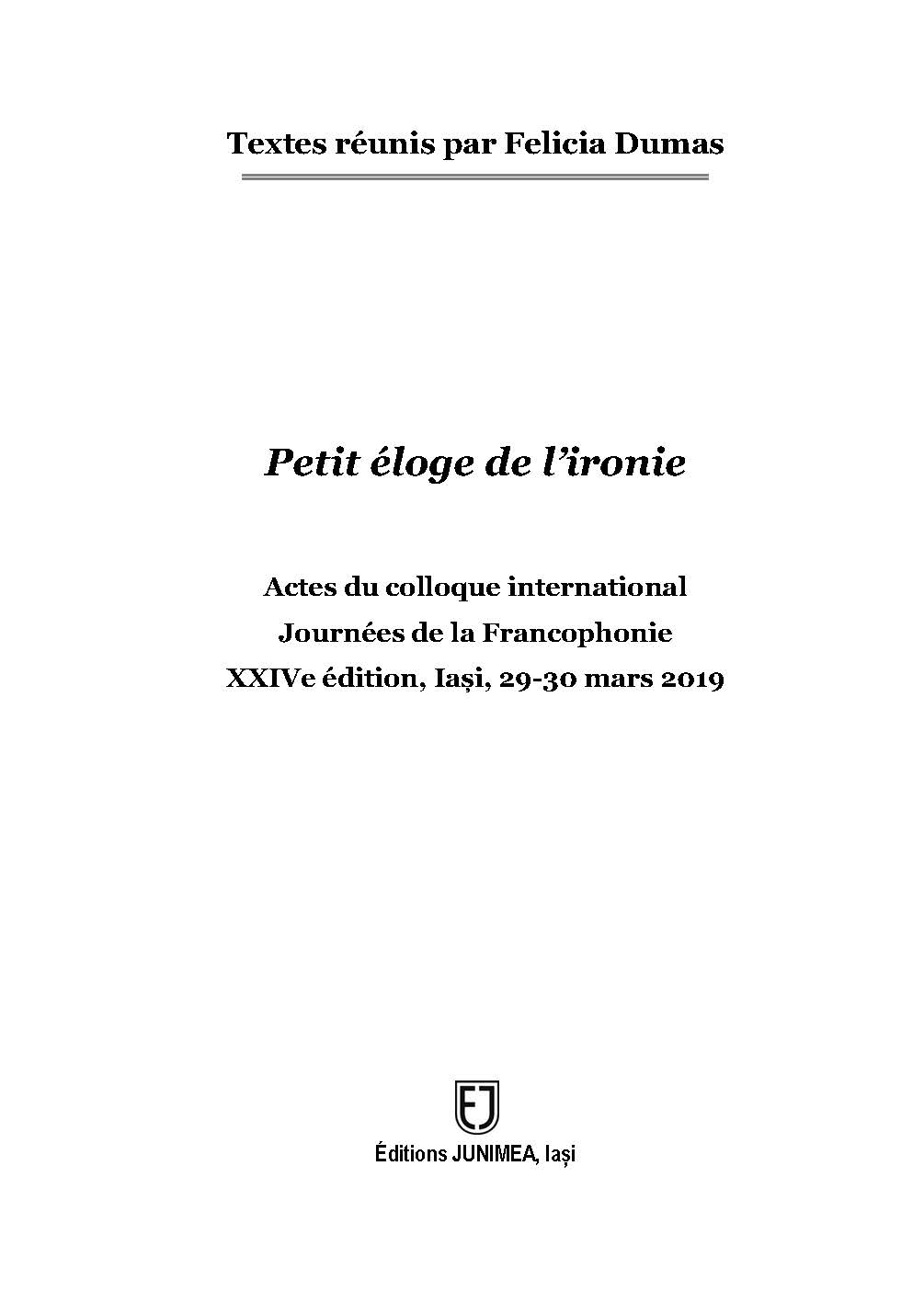
This volume represents a collection of texts presented in the form of scientific interventions during the annual French-speaking colloquium organized for the XXIVth consecutive time by our French Department of the Faculty of Letters of the University "Alexandru Ioan Cuza" of Iași. In 2019, the general theme of this international event was that of irony. Laughter, questioning of seriousness, withdrawal from the gravity and implacability of fate, humor and other literary and linguistic forms of irony are therefore the main subjects of our book.
More...
The work constitutes an attempt to describe the poetics of the 20th and 21st century neo‑fantastic prose of selected French‑speaking countries (France, Belgium, Quebec). The analyses of the material made use of such research methods as a semiotic description of the character (A. Greimas’ actantial model), Ph. Hamon’s semiological model and U. Eco and V. Jouve’s semiopragmatic method. The first chapter covers basic elements of the world presented in literary works: time, space, their chronotop (M. Bachtin) and personage, responsible for creating a mimetic illusion crucial to the formation of the fantastic effect. The next chapter was devoted to the manifestations of “a fantastic phenomenon”, taking on the shapes of the following anxiogenic figures: a ghost, vampire, psychopath (also in gore movie), double, woman, fear‑evoking objects. The next chapter concentrated on the presentation of special ethics and aesthetics of fantastic prose these days, describing above all the evil, ugliness, the negative and repulsive (all possible perversions and sexual deviations, pure evil, cruelty). The last chapter discusses the form of works within the scope of “new fantastic literature”: selected elements of a paratext according to G. Genette (an incipit, excipit, preface), forms and structures of narration, as well as traditional and new writing techniques typical of the genre of fantastic literature exclusively. A conclusion constitutes an attempt to answer the question on the scope within which contemporary fantastic literature modifies definitions of traditional fantastic literature and to what an extent it continues or diverges from canonic fantastic literature. The appendix includes versions of “urban legends” in extenso, as well as notes bringing the profiles of the French‑speaking writers closer.
More...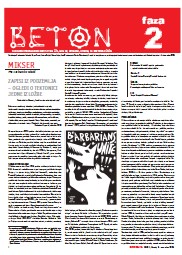
MIKSER, Aleksandra Sekulić: Zapisi iz podzemlja – ogledi o tektonici jedne izložbe; Blok br. V, Danilo Milošev Wostok; Wostok/Grabowski; ŠTRAFTA, Grupa za konceptualnu politiku: Hronologije sadašnjosti Silvena Lazarisa; ZID, Tanja Ostojić: Misplaced Woman?
More...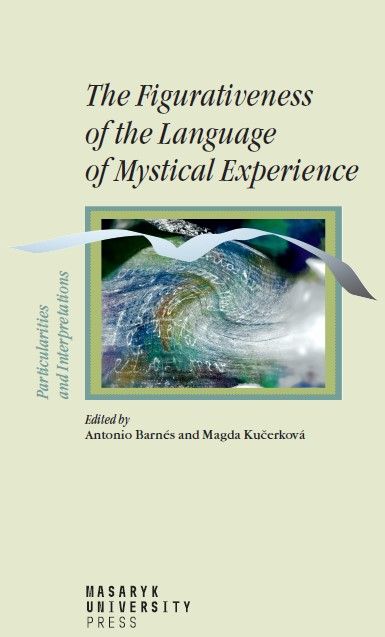
The scientific and technical achievements of the last decades have enabled man to achieve an unquestionable life comfort. Paradoxically, however, they also stand behind his existential struggles, where the need to slow down the pace and restore one’s own emotional and cognitive resources, revive communication models based on immediate contact, be authentic, creative, stronger, and so on breaks through the surface. One way of looking for a personal way of life and its meaning is through a religious, more precisely, spiritual experience. We consider the mystical experience to be the modality of the spiritual expression or, more precisely, its autonomous part. We see it as a descent of man into his own interior, so called the centre, in which he acquires a pouring knowledge of the nature of God. Although it is an individual and spontaneous experience, it is characterized by some universal features: imagery as a means of conveying the inexpressible content and as an archetypal basis of spiritual tradition. The publication focuses on the literary-artistic forms of the mystical experience as well as the literary forms of mystagogy, that is the interpretation of the mystical experience of the mystic. Through individual analytical-interpretative contributions based on the works of the mystics of the Western Christian tradition, we will try to enter into a specific image of ineffability modelled (the language of mystical unification) and reflexively stimulated (the language of mystagogy) by mystical experience. This is a complex subject confirmed by its basic attribute (inexpressibility at the language level) and by its thought-initiated tensions (for example, interior vs. exterior, authentic vs. ritual, profane vs. sacred, natural vs. supernatural).
More...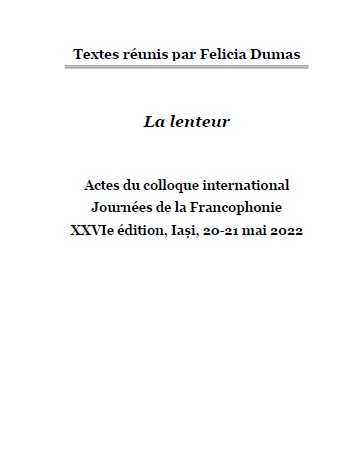
Le présent volume réunit les textes des communications présentées lors du colloque annuel organisé par le Département de Français de la Faculté des Lettres de l’Université « Alexandru Ioan Cuza » de Iași, sous le nom des « Journées de la Francophonie ». En 2022, ce fut la XXVIe édition de cette manifestation scientifique, devenue au fils des années traditionnelle, et attendue avec intérêt par les francophones de la région, du pays et même de nombreuses universités étrangères, partenaires dans différents programmes et échanges internationaux.
More...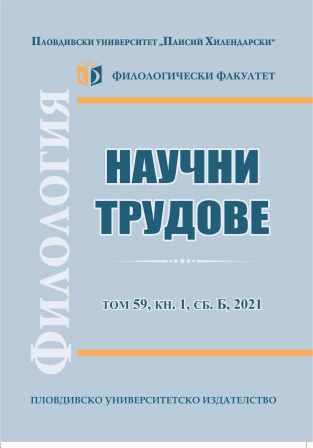
The edition covers structural, functional, pragmatic, social and cognitive aspects of studies in language, literature and culture, including a broad range of interdisciplinary issues. In addition to research articles, the edition also welcomes book reviews.
More...